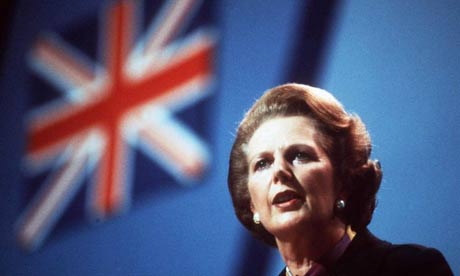Nov 6, 2010 Comments Off on The Public and the Private
The Public and the Private
The Public and the Private
Anthony McIntyre
The Pensive Quill
Richard O’Rawe has just published a new book. Its title is Afterlives and was launched in Belfast on Thursday evening. Due to last minute ‘ambushes’ I was dragged elsewhere and had to cancel my planned journey north. Much to my regret, because O’Rawe is a battler who has done much to protect free inquiry from book burners and censors. Each time I have tried to phone him since his line has been engaged. I somehow doubt if it was with callers telling him how upset they were at his new work. They would rather paint on walls.
I have still to get a copy but it is being said that Afterlives is a forensic destruction of the argument that that the then republican leadership has no case to answer over its management of the 1981 hunger strike. O’Rawe sets out his stall in relation to the heated debate generated in the wake of his first book Blanketmen. It was there over five years ago that he first publicly vented grave misgivings about the longevity of the strike, expressing the view that with better management six lives need not have been lost. What he said in Blanketmen he had already been saying in private for years. In fact it was through such claims that I ended up meeting him again after a gap of many years. Our paths for long enough simply had not crossed.
Brendan McFarlane the leader of the IRA prisoners during the 1981 hunger strike has reentered the fray against O’Rawe. McFarlane, while not silent on the issue previously, has not been to the fore of the debate to the extent that some might have expected. The prolix of others who have rejected the O’Rawe claims seems not to have done the trick. Turning up the volume and drowning all else out might have made things loud but certainly not clear. So McFarlane has stepped in to the breach to make up the deficit. No easy task given that O’Rawe in the public mind has taken on the persona of writer in residence in the hunger strike debate, his account the incumbent narrative which others must dislodge if they are to make progress of their own. The once dominant Sinn Fein perspective has been rocked and now struggles to stay on its feet and avoid the telling blows that have so far penetrated its guard.
In literary terms O’Rawe’s reversal of fortunes is akin to the Soviet obliteration of the German Operation Barbarossa. Hit by a seemingly unstoppable Blitzkrieg of ill will and hate salvoes from the minute it emerged out of its birth canal, O’Rawe’s challenging account had to withstand a battle a day. But gradually and against the odds, the besieged author carefully pulled his critics onto the punch and delivered body blows that pushed them back well behind their own lines.
It is with much regret that I have followed Brendan McFarlane’s recent contributions including that in today’s Irish News. He does not seem comfortable in the role. Earlier in the week in the Derry Journal he was adding new detail to the narrative which to have any bearing should have seen the light of day much earlier in the debate. Unlike O’Rawe’s revelations, they seem awkward and grafted on, constructed from the perspective of the present rather than as an accurate history of the past.
I have long regarded Brendan McFarlane as a person of immense integrity who led from the front in the violent crucible of the H-Blocks. His task was onerous and unenviable. I feel distinctly uncomfortable about the position this outpouring of critique has placed him in and have said as much to O’Rawe. Yet the chips fall where they do and the evidence lends itself to no conclusion other than that a deal was offered which was accepted by the prisoners. This acceptance was subsequently subverted by the leadership for whatever reason and the hunger strike carried on with the resulting loss of six more lives.
Today Brendan McFarlane revealed communications written by Richard O’Rawe in his capacity as jail PRO. McFarlane claims these show that O’Rawe while in the prison was not of the view that the British had made any substantive offer. But this is old hat, a repeat of the Danny Morrison venture to Dublin a few years ago to search archives for similar communications. Morrison returned to Belfast and revealed that what he had discovered in Dublin was … Dublin. Few took the Morrison ‘comms’ disclosure seriously, intuitively knowing that the public positions of the day were not what people believed privately. How otherwise could the ‘victory’ parade presumably organised by Morrison and others in the wake of the vanquished 1980 hunger strike have gone ahead? The organisers knew privately that no victory had been achieved but publicly ran with the victory parade anyway.
Brendan McFarlane is an important witness to history. He could do worse than take stock of his situation and render a version of events that, even if at odds with the interpretation of Richard O’Rawe, at least sounds credible. The current narrative he is defending is, as William Sydney Porter might have said, ‘beautiful and simple, as truly great swindles are.’


 This time last week, the name Richard O’Rawe meant little to most people in Ireland. He has no reputation as a political scoundrel, nor has he acquired the notoriety that comes with taking the life of a fellow human being. Although a republican from childhood, there are no photographs of him with a tongue sticking through each cheek, or his nose a foot long. He is not a prominent writer … yet. So there was no particular reason for his name to have generated widespread recognition.
This time last week, the name Richard O’Rawe meant little to most people in Ireland. He has no reputation as a political scoundrel, nor has he acquired the notoriety that comes with taking the life of a fellow human being. Although a republican from childhood, there are no photographs of him with a tongue sticking through each cheek, or his nose a foot long. He is not a prominent writer … yet. So there was no particular reason for his name to have generated widespread recognition. It has withstood the blows of a million years, and will do so to the end.
It has withstood the blows of a million years, and will do so to the end.